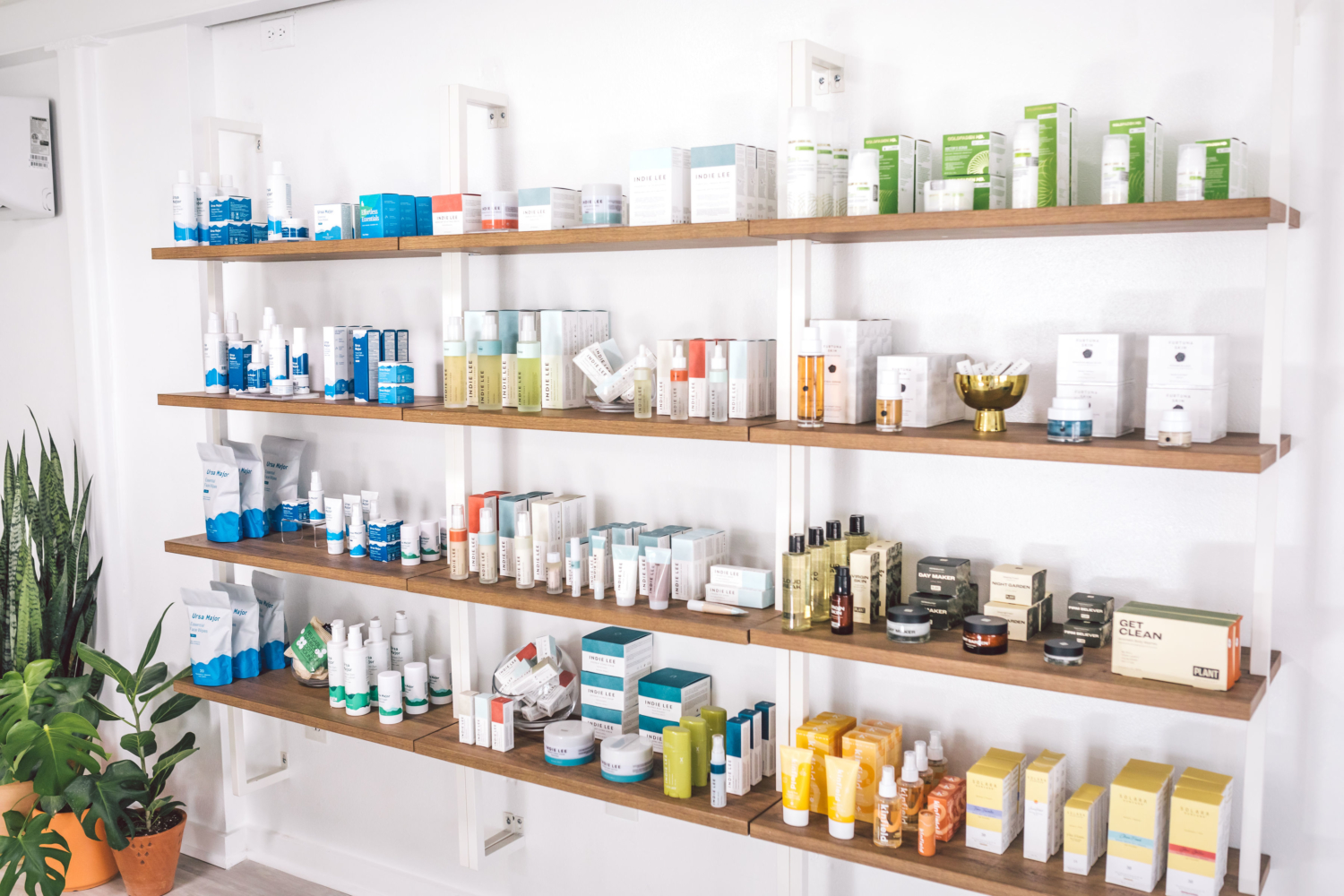It goes without saying that the past two or so years have yielded an incredible amount of change in countless ways. For instance, some people found a new calling, pivoted careers completely, and ventured to undertake new beginnings into the wide unknown. One of those such people is Katie Tik, the London-based co-founder and CMO of sexual wellness brand Quanna, whom you may recognize her from her previous stint as a fashion and beauty influencer. Below, you’ll see exactly how she was inspired (like many of us) to start anew, and what her team at Quanna is doing to transform sexual taboos into empowerment via CBD products, honest dialogue about women’s bodies and sexual self-care, and more.
You’re a known fixture in fashion/beauty. What inspired you to pivot spaces and co-found Quanna?
I will always have an affinity towards all that is fashion, style, and beauty and I understand that it may seem like a peculiar start to transition into the wellness space, but my fashion background actually allowed me a perspective into this different trajectory. My professional introduction to fashion and beauty was as an influencer, a term that makes some cringe nowadays, but the core to being an influencer I believe is not attempting to be “influential” for your following, but to influence collaboration. It’s what I enjoyed most, that synergy of creatives piecing together that timeless look from head to toe along with the brilliance of vision from camera to edit, where at the end you truly embody being the canvas of a tremendous partnership. It is because of this privilege of working with so many diverse people and brands that I was offered an alternative point of view into the beauty/wellness industry.
The epiphany came to me while working with beauty brands. As well-intentioned as these products were being an investment into my skin-care needs and boosting my confidence, I realized I wasn’t dedicating nearly half my focus to different wellness concerns such as anxiety, sex, and intimate health…you can say I was only getting “skin deep” into my issues. And when it came time for closer inspection into my intimate care, I was struck with the fact that there wasn’t the same emphasis on integrity and comparable quality products in this space. Ingredient lists that I wouldn’t even put on my face would be going near/in my intimate parts – absolutely not!
On top of that, there wasn’t this clear voice for those who sought not only a better experience in the bedroom but some camaraderie in their journey towards sexual wellness. For instance, vaginal dryness or painful sex isn’t limited to just older women. Sexual wellness is an integral facet of living an authentic life and so that seedling of consciousness has motivated me to partner with my co-founder Dmitry and help everyone find some peace by prioritizing their pleasure and cultivating a healthy relationship with intimacy.
What were the biggest challenges of launching this “pandemic baby”?
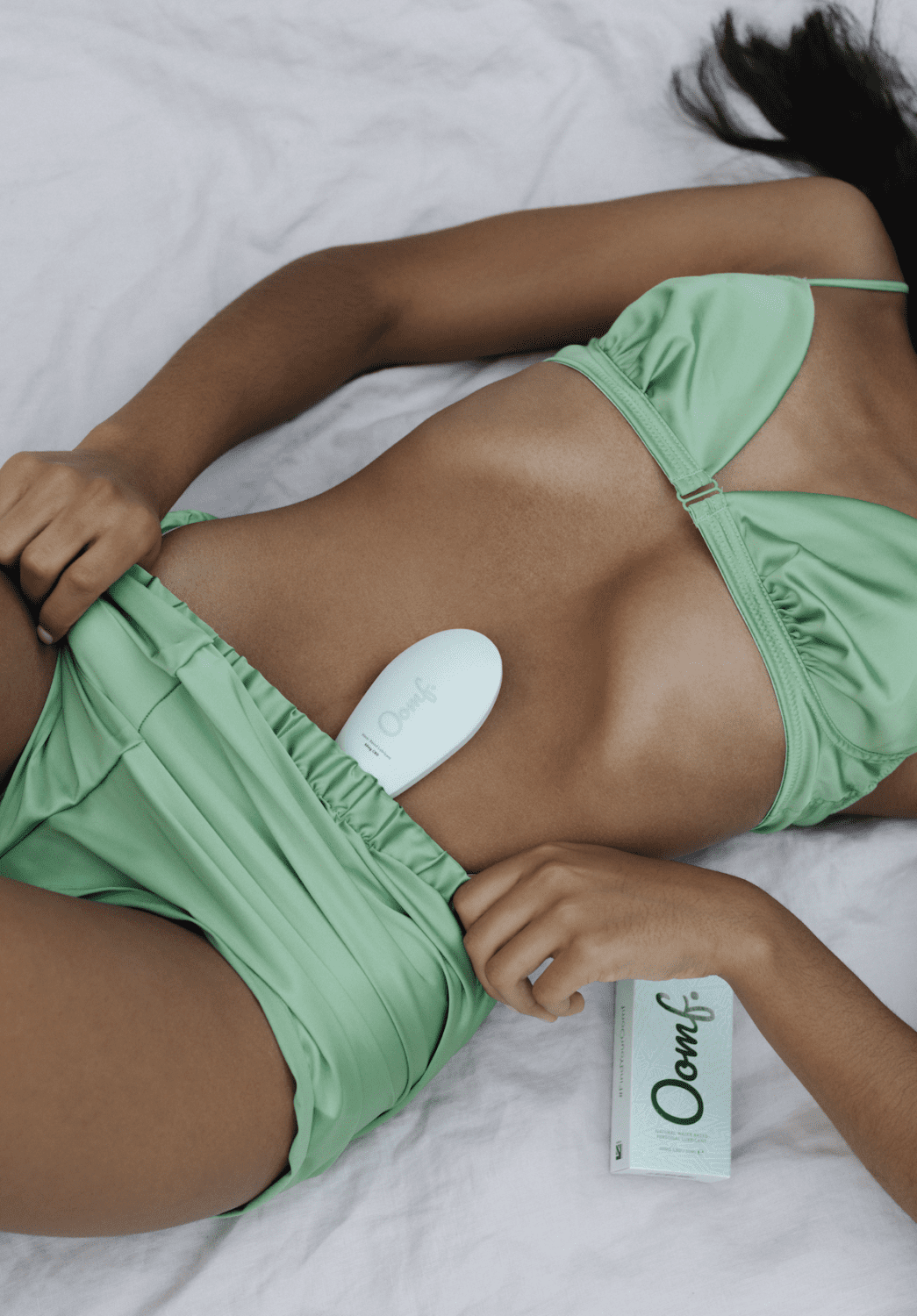 Oh, where to start haha I mean I think for anyone that made large/risky decisions during the pandemic, whether personally or professionally you definitely asked yourself… “Is this the right time?” because of the world as we knew it was fearfully on pause. What is the proper next move? Launching Quanna was daunting from a financial aspect, but it was also liberating because in that same moment it just felt like a second act in a way for me and Dmitry’s professional lives. The biggest challenge though for our launch was adjusting to and respecting the reset of our society’s mindset. The post-pandemic haze of survival along with self-reflection had us all evaluating our priorities, especially in terms of the relationships we keep with others as well as ourselves. There was frankly no more time to be wasted on bs, and we wanted to tread lightly in order to educate ourselves on what was it that people were struggling with after the height of the pandemic rather than simply peddle product. Well, we’ve come to learn that sensibilities are evolving and sexual topics including intimate care are becoming less stigmatized because, after two years of physical disconnection, we as humans are craving intimacy, whether that be rekindling that fire in a long term relationship, pursuing a new lover in this era, or finally taking the time to explore your needs.
Oh, where to start haha I mean I think for anyone that made large/risky decisions during the pandemic, whether personally or professionally you definitely asked yourself… “Is this the right time?” because of the world as we knew it was fearfully on pause. What is the proper next move? Launching Quanna was daunting from a financial aspect, but it was also liberating because in that same moment it just felt like a second act in a way for me and Dmitry’s professional lives. The biggest challenge though for our launch was adjusting to and respecting the reset of our society’s mindset. The post-pandemic haze of survival along with self-reflection had us all evaluating our priorities, especially in terms of the relationships we keep with others as well as ourselves. There was frankly no more time to be wasted on bs, and we wanted to tread lightly in order to educate ourselves on what was it that people were struggling with after the height of the pandemic rather than simply peddle product. Well, we’ve come to learn that sensibilities are evolving and sexual topics including intimate care are becoming less stigmatized because, after two years of physical disconnection, we as humans are craving intimacy, whether that be rekindling that fire in a long term relationship, pursuing a new lover in this era, or finally taking the time to explore your needs.
CBD has been a trending ingredient in the wellness space for a few years now. Why do you think it’s becoming increasingly mainstream, and does it have the lasting power to withstand other up-and-coming ingredients?
Yeah, there has been this sort of CBD boom these recent years, where it’s understandable for those questioning if CBD’s benefits actually match the hype and if it is here to stay. The thing about CBD that separates it compared from other up-and-coming ingredients is the fact that scientific research on it is still ongoing in terms of its growing list of benefits. More importantly, though is that its fundamental interaction is based on a function within our bodies known as the endocannabinoid system. Now, this system has been discovered relatively recently in the early 90s when scientists determined that the brain has two receptors, CB1 (located centrally in the brain) & CB2 (located peripherally throughout the nervous & immune systems, as well as other functionally important locations such as the heart, pancreas, and stomach). These receptors respond to so-called phytocannabinoids, chemical elements found in cannabis plants. These cannabinoids number over 100 and most prominently include, you guessed it — CBD. So I think it is safe to say that this is just the tip of the iceberg when it concerns CBD’s beneficial longevity.
What is one myth about intimate wellness you’d like to dispel?
That using a personal lubricant means there’s a sexual dysfunction or that something’s “broken”. First off, there is this general assumption that vaginal dryness only affects menopausal women, which is not true. Almost anyone of any age can experience vaginal dryness due to varying reasons such as using harsh hygiene products, drug treatments like allergy and cold medications, some antidepressants, hormonal changes due to breastfeeding, or having chemotherapy, the list can go on. Secondly, using a personal lubricant ensures pleasure is accessible to everyone. During sexual stimulation, your blood vessels dilate so more blood flow goes to the genital area, and that blood rush prompts various vaginal glands and mucous cells to secrete fluids that make sex easier and more enjoyable for both people involved. But, sometimes even when you’re turned on, it takes a while for your body to get on the same page as your mind which is where a personal lubricant comes in handy for the magical trifecta: more time for foreplay, no time for friction, and more time for fu..n.
In simple terms, what does sexual wellness mean to you?
I would go with Quanna’s fundamental belief that sexual wellness is a state of body/mind that enables you to enjoy and explore sex on your own terms and in your own time. I believe this definition of sexual wellness to be empowering because it underlines the fact that it’s not so much concerned with gratifying someone else, but instead getting more in tune with who you are emotionally, physically, and spiritually. How do you explore that side of you and what are your desires?
What does Quanna do to promote dialogue around making sexuality and sexual wellness less “taboo”/shy?
We back up our words with actions. For instance, we’ve recently teamed up with our friends at FEWE to properly address the unsettling censorship over women’s concerns related to menopause, pelvic pain, postpartum health, menstrual health, sexual wellness and breastfeeding. If websites like Meta continue to flag these types of conversations, they’re essentially conveying that there is something inherently shameful about them, which is ridiculous. Language restriction online surrounding the word ‘Vagina’ or ‘Vulva’ makes searchability for educational platforms like ourselves more difficult and denies the opportunity for women and gender minorities to learn and talk openly about their bodies. This is why we challenge the taboos head-on with our peers that are fighting the good fight.
We also listen to what topics our community wants us to broach rather than just be an endless faucet of informative posts. It goes beyond just covering sex or masturbation, it’s a conversation and we aim to provide that guidance and support through our blog and social media channels. We have an excellent expert series where we speak with diverse trailblazers in their respective fields of psychology, sexual education, and more to address those uncomfortable conversations that we all are thinking about. There’s nothing off the table for us and hopefully, we do the work where our community knows that taboos no longer need to have room to intimidate anyone into silence.
What advice do you have for young women/mothers to feel more comfortable in their bodies and tapping into their sexuality—and to be vocal about it, at that?
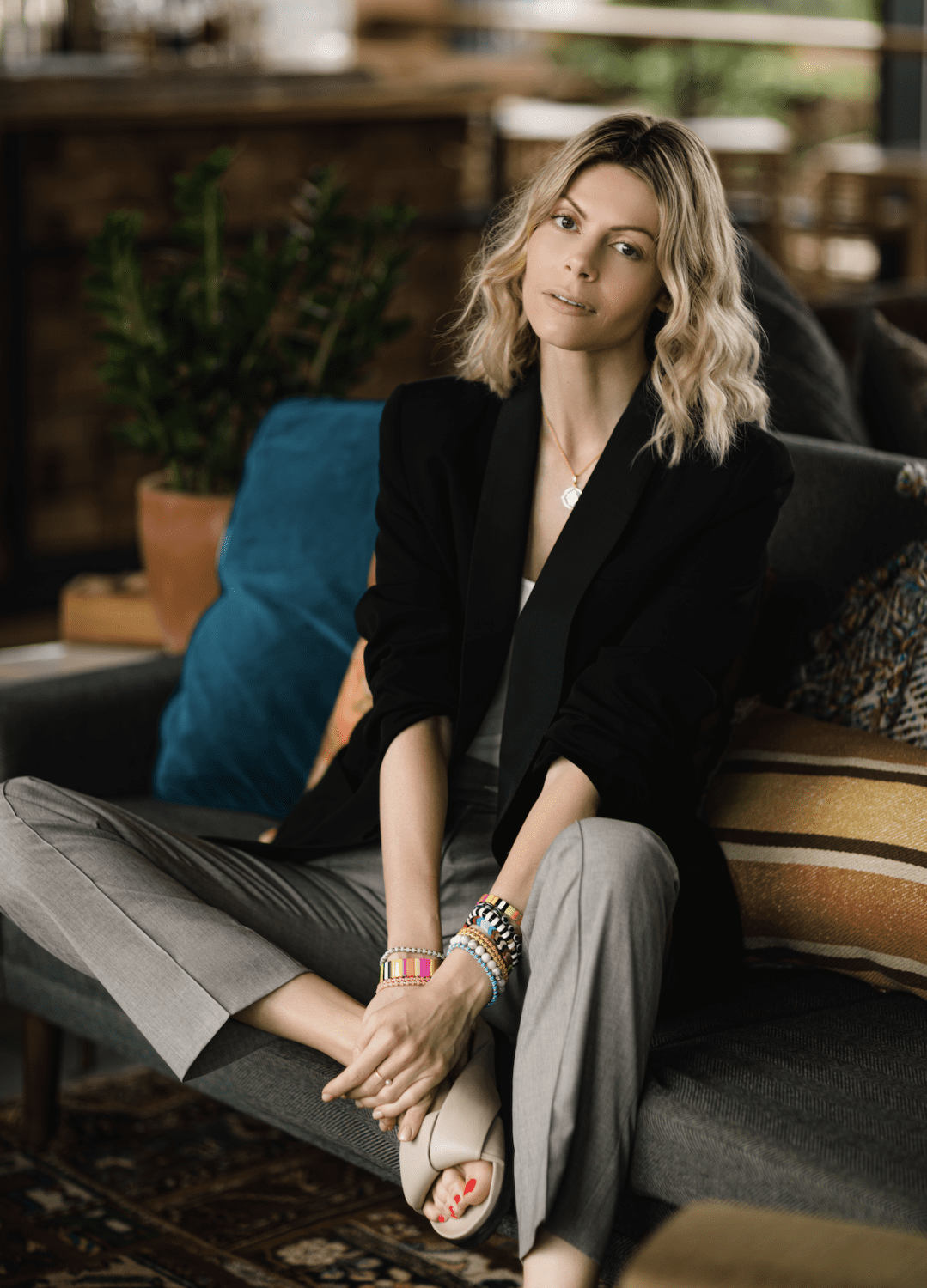 I think it’s important to remember that sexual confidence is fluid just like self-confidence. It’s not always going to be at 100% all the time, but the baseline should be that regardless you know that you are always deserving pleasure and joy. If you want to feel more sexually confident I believe there needs to be a shift from performative sex towards pleasurable sexual experiences by practicing mindfulness and recognizing thoughts as they shift in and out of your mind and continue to bring yourself back to the moment. Feeling good in your body will change how you feel about your body. Allow yourself to be present and to communicate your desires because being able to articulate what you enjoy is a sign of sexual confidence.
I think it’s important to remember that sexual confidence is fluid just like self-confidence. It’s not always going to be at 100% all the time, but the baseline should be that regardless you know that you are always deserving pleasure and joy. If you want to feel more sexually confident I believe there needs to be a shift from performative sex towards pleasurable sexual experiences by practicing mindfulness and recognizing thoughts as they shift in and out of your mind and continue to bring yourself back to the moment. Feeling good in your body will change how you feel about your body. Allow yourself to be present and to communicate your desires because being able to articulate what you enjoy is a sign of sexual confidence.

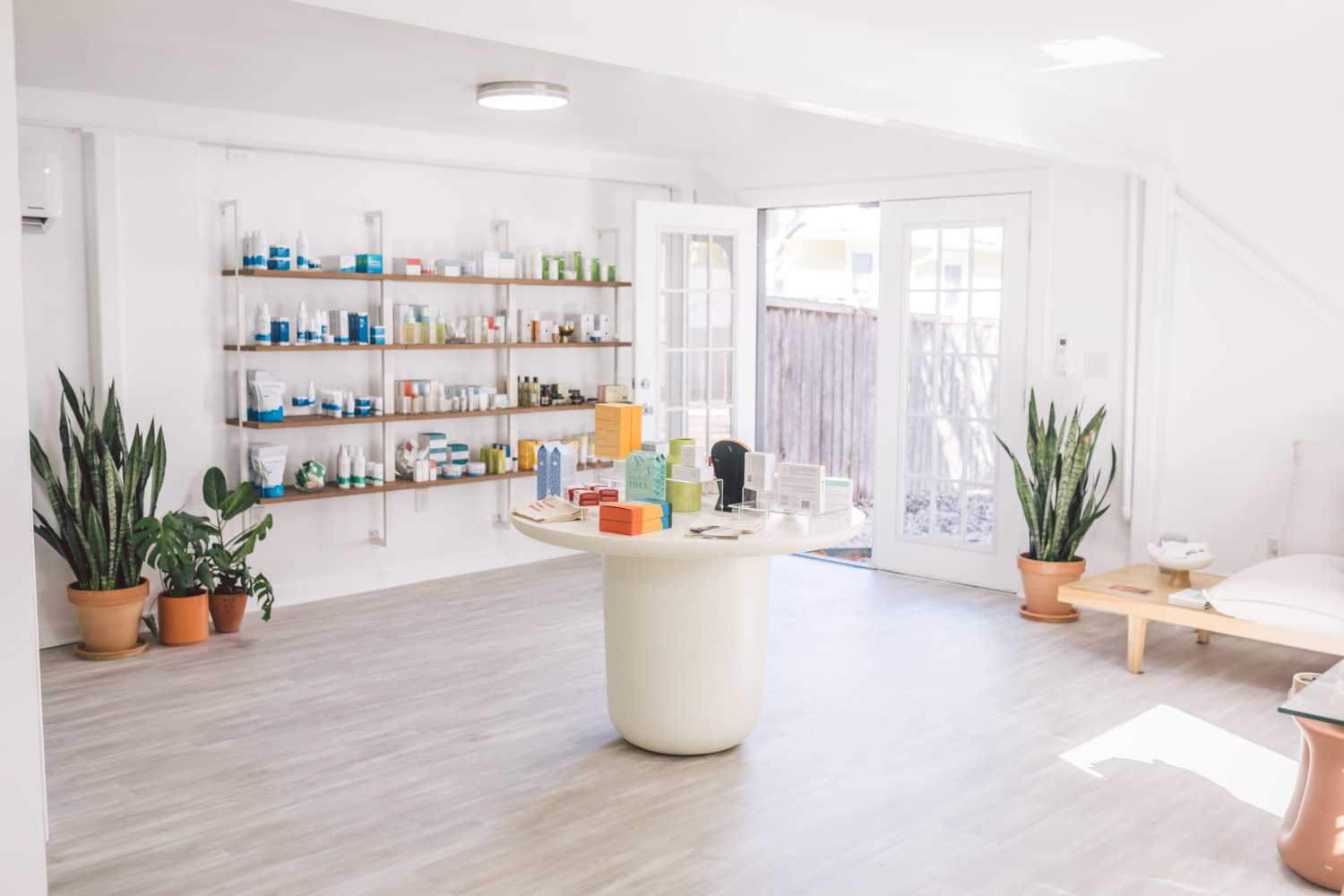
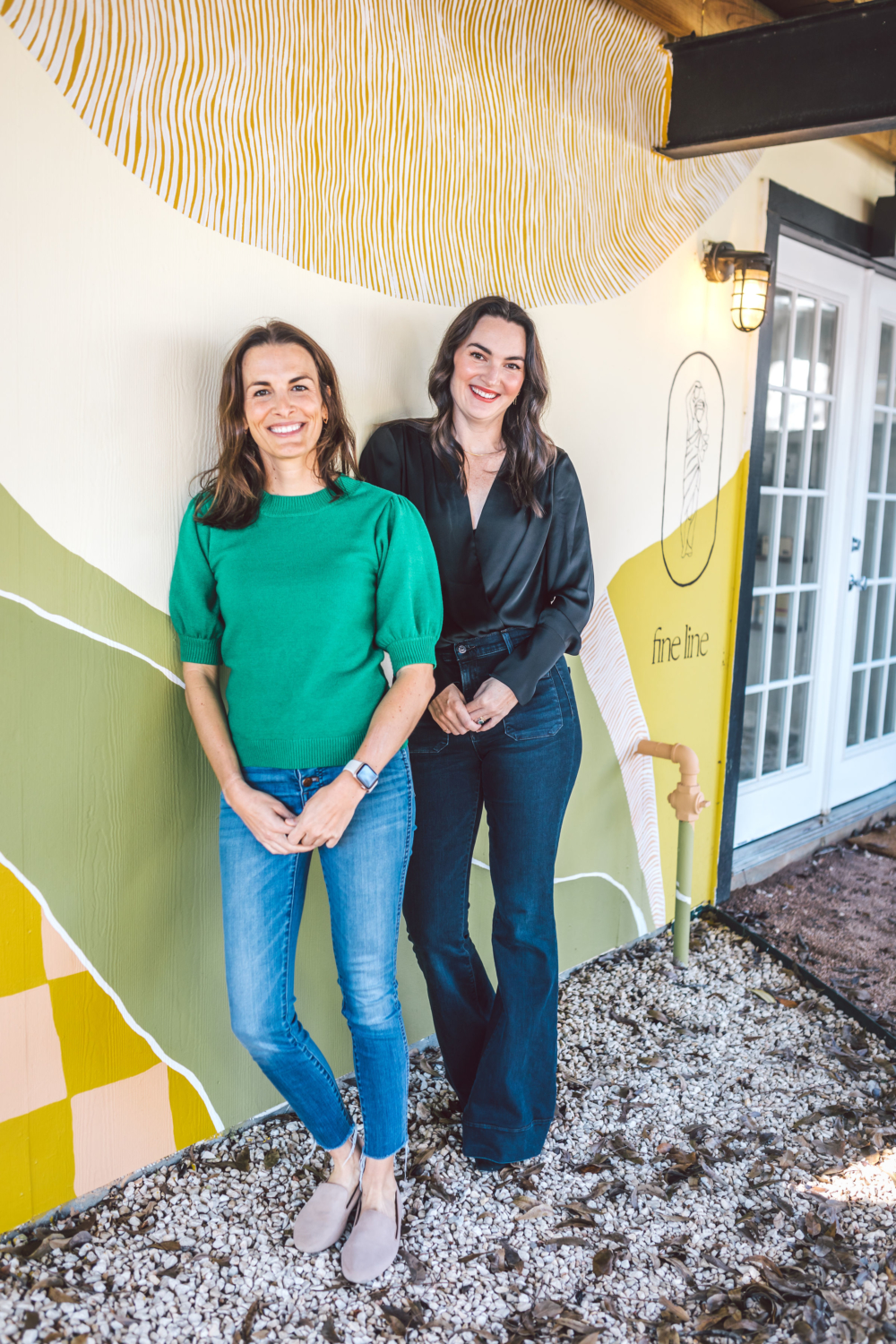 Favorite mood-boosting meal?
Favorite mood-boosting meal?